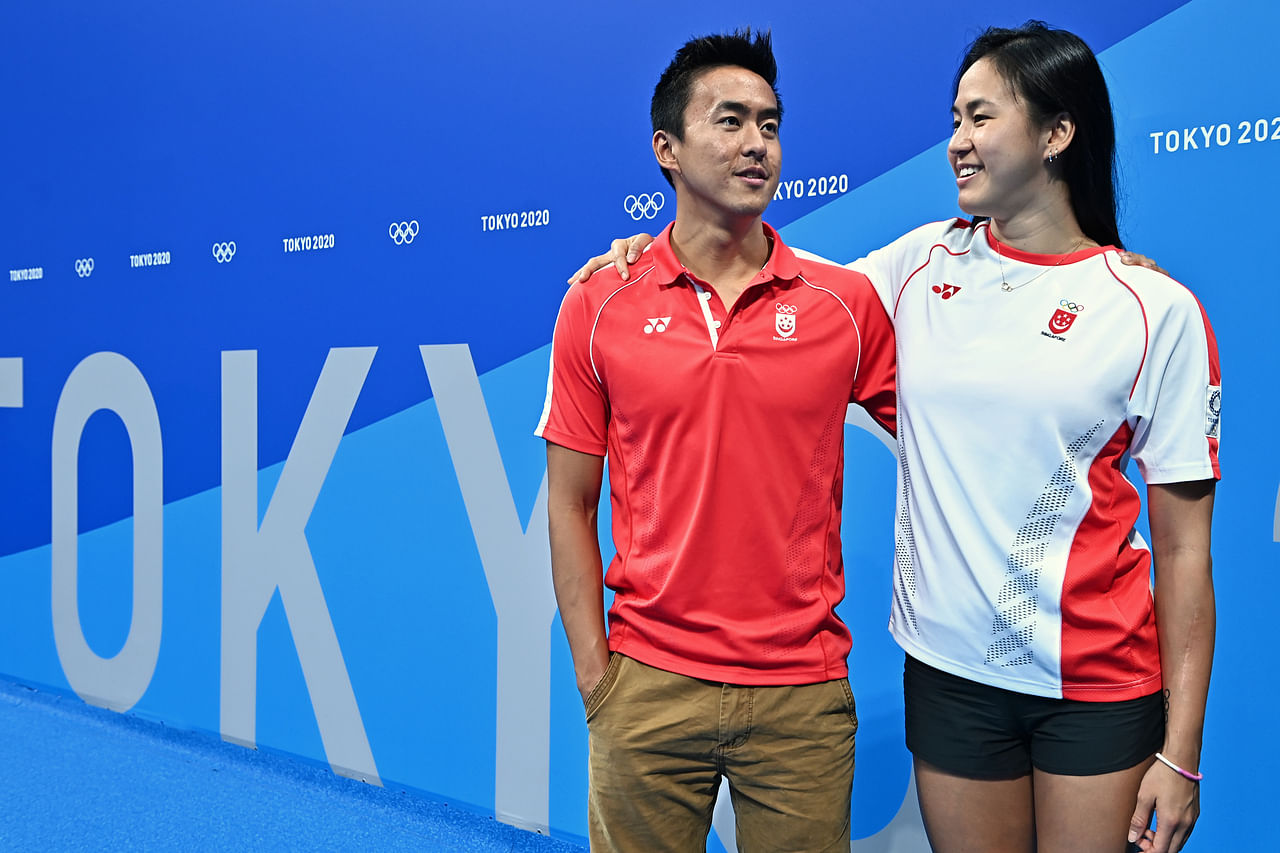TOKYO - Stepping into the debate on athletes' mental health and emotional well-being, American swimmer Simone Manuel last week called for a halt to media interviews immediately after disappointing performances.
At the Olympic Games, athletes are often interviewed on live TV right after their races or matches, followed by interviews in the mixed zone with other non-broadcast media.
This is also the case for Singaporean athletes at the Olympics, with swimmer Quah Zheng Wen snubbing the media after some of his races at Rio 2016, igniting a debate on whether athletes were obliged to do interviews.
Manuel said on Twitter: "Please stop interviewing athletes right after a disappointing performance before they have any time to process anything. Trust me. They gave it their all. Nothing else people need to know at that time."
The 25-year-old won two golds at Rio 2016 but her training for the Tokyo Games was disrupted by the Covid-19 pandemic and she was later diagnosed with burnout. She did not defend her 100m freestyle title at Tokyo 2020 as she did not qualify for it and missed out on the final of the 50m free, which she won silver at Rio. She finished the Games with a bronze in the 4x100m free relay.
The pressure placed on elite athletes has been a hot topic at Tokyo 2020, with star gymnast Simone Biles pulling out of five events citing mental health concerns. She later spoke about the pressure she felt coming into the Olympics, where she had been expected to win six gold medals.
Manuel said that the "lack of empathy for athletes is problematic".
She added: "It's mentally and emotionally exhausting to coherently answer questions while trying to process the fact that people already saw you fall short of the goals you worked so hard for on the world's biggest stage.
"Just offering solutions that I believe many athletes feel need to be made. Just give us a moment. The story can wait. Empathy and kindness is the most important thing we need in that moment."
Singaporean athletes competing at Tokyo 2020 told The Straits Times that emotional management was key and that it was important for them to share their stories and be accountable for their performances.
Quah was more candid this time in Tokyo and did not shy away from tough questions, even though the results were poorer by his standards - he did not make it past the heats for the 100m and 200m butterfly, and 100m backstroke.
The 24-year-old, who recently graduated from the University of California, Berkeley, said that he has matured and "actively tries" to become better at expressing himself.
"When I was younger, I was more brash, more impatient," he said. "I don't think I'm any less upset now. In fact, I could arguably say I am more upset this time round, but I've learnt over these past few years that there are people who look up to you and want to know about your journey.
"There are people back home in Singapore supporting me, so I should give them my time and talk, even if it is through a middle party like the media. They (supporters) deserve to know why certain things are the way they are, while I represent the flag we all love."
Emotional management is also part of his development, and he has learnt from his time swimming in the National Collegiate Athletic Association that "as part of a unit I have to learn and maintain my emotions".

Elder sister and swimming teammate Quah Ting Wen had finished last in her women's 50m and 100m freestyle heats and summed up her performance as "bad", but remained vocal.
She revealed the gamut of feelings and emotions athletes go through after an event, and felt that it could be difficult to gather one's thoughts immediately.
The 28-year-old said: "Doing interviews a few minutes after you get out of the water, when you're tired, disappointed, angry, frustrated… and having to compose yourself and not be too emotional in a bad way, is difficult."
Despite being taught by authorities to be "careful, very cautious" when dealing with media, she has "grown to understand it's okay to express our disappointment".
She added: "It took a very long time for us to understand it's okay to be authentic and honest. It's not wrong to share with people the thought process and what goes through your mind before, during and after races. That's also how people understand your sport better, right? People won't be so generous to something they don't understand."
Badminton player Loh Kean Yew said that it is about being accountable to himself and other stakeholders.
The 24-year-old, who is ranked 40th in the world, gave Indonesia's Asian Games champion Jonatan Christie a good fight before missing out on a place in the knockout rounds.
He said: "Reporters are just doing their jobs, and we are too. We all have ups and downs, and talking about a defeat helps us be accountable and face up to what we lacked and be up front about what we can improve to do better for the future."


